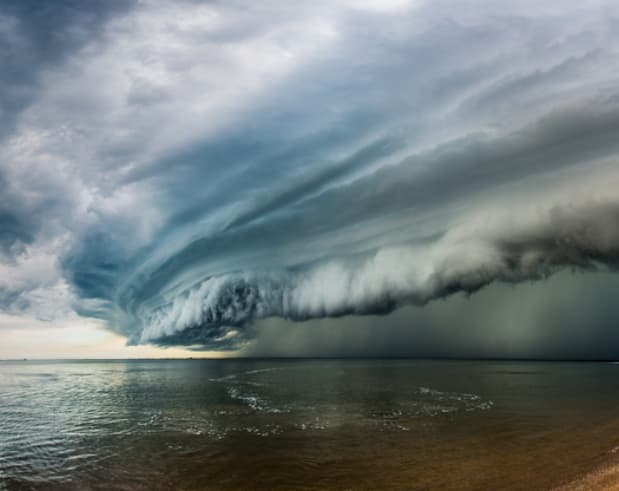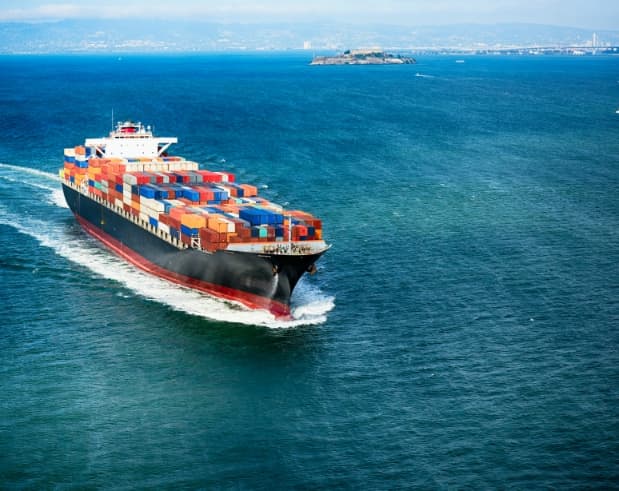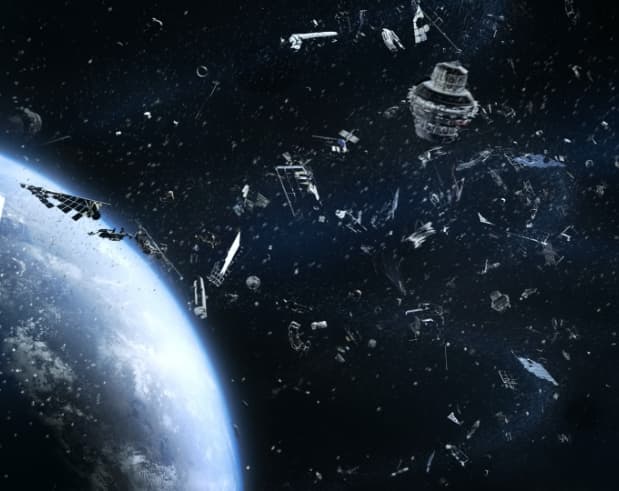
Sustainability
Our approach
Small satellites are critical for understanding the planet better. From monitoring the spread of wildfires to measuring the size of the polar ice caps, they give us the ability to observe key climate change indicators in real time.
In fact, earth observation – the monitoring of Earth’s ecosystems from space – is one of the biggest drivers of growth in the small satellite market.
We’re involved with a range of exciting projects that use space data to improve decision-making, manage our planet’s resources more efficiently and help us all to live more sustainably.

Accelerating sustainable development in Mauritius
In 2020, we delivered Mauritius’s first satellite, a 1U CubeSat (MRIC Sat-1) as part of a United Nations initiative (United Nations Office for Outer Space Affairs). UNOOSA helps countries access and leverage the benefits of space to accelerate sustainable development. This project was an important step in helping Mauritius to establish its own space infrastructure to tackle three issues of national priority identified by its government:
1. Ocean surveillance and optimal management of ocean resources, e.g. tackling fish depletion, in the Mauritian Exclusive Economic Zone (about 2.3 million km2)
2. Road traffic congestion
3. Natural disaster mitigation
Mauritius intends to use MRIC Sat-1 to build knowledge on satellite technology and how to collect and process land and ocean data from space efficiently. Importantly, the project also serves as a model for other small island developing states.

Cutting maritime emissions
Shipping is the most cost-effective way to transport goods around the world – that’s why 90% of everything we consume is moved by sea.
But the environmental consequences are serious. In fact, the shipping industry is responsible for around 940 million tonnes of carbon dioxide emissions annually. The International Maritime Organization, part of the United Nations, has set a target to reduce greenhouse gases from international shipping by at least 50 per cent by 2050.
We’re working with Saab and ORBCOMM to deliver a new space-based communications system for the shipping industry that will help to cut fuel consumption and, in turn, emissions.
The VHF Data Exchange System (VDES) has up to 32 times more bandwidth than the current system and enables continuous communication with vessels at sea. This means it can be integrated with e-navigation systems to ensure ships take the most direct and most efficient routes, enabling savings in fuel and emissions of up to 25%.
Better coordination between ships also means fewer accidents. Where accidents do occur, VDES will enable quicker response times, enabling faster clean-up of any diesel or oil spills.

Monitoring ocean health
The oceans represent around 99% of the Earth’s living space by volume and deliver numerous benefits to humanity. However, climate change, overfishing and pollution are taking their toll and, if left unchecked, are likely to be devastating for the planet’s future.
Space remote based sensing provides global coverage of our oceans, which would be impossible using planes and ships alone.
For example, our work on the SOCON project (Sustained Ocean Color Observations using Nanosatellites) helps to monitor the changing biology of the ocean’s surface. This data is vital for supporting ocean health and, in turn, entire ecosystems.
The project is a joint collaboration with the University of North Carolina Wilmington, Cloudland Instruments and NASA’s Goddard Space Flight Centre. We built the spacecraft and integrated the ocean colour sensors. Now in orbit, it collects data which is integrated into NASA’s SeaWiFS Data Analysis System and distributed worldwide.

Reducing space debris
The global space economy is expanding rapidly, but this growth is threatened by the increase of human-made space debris, which is approaching a critical level. According to a statement released at the 2021 World Economic Forum, close to one million objects larger than 1cm travel at 27,000 km per hour in Earth orbit – each one a threat to satellites and other spacecraft performing valuable services to our global economy, from earth observation to navigation, communication and research.
We are committed to helping to safeguard the Earth orbits and ensure we use them in a sustainable and safe manner now and for future generations. For example, we are currently working on propulsion technology that will help to avoid collisions in space and to accelerate a spacecraft’s re-entry, minimising its time spent in space after end of life. We’re also proud to partner with clients who are working to clean up space by developing reusable spacecraft as well as technologies that capture and remove debris from orbit.
Sign up to our newsletters for the latest news, projects and more delivered straight to your inbox
"*" indicates required fields